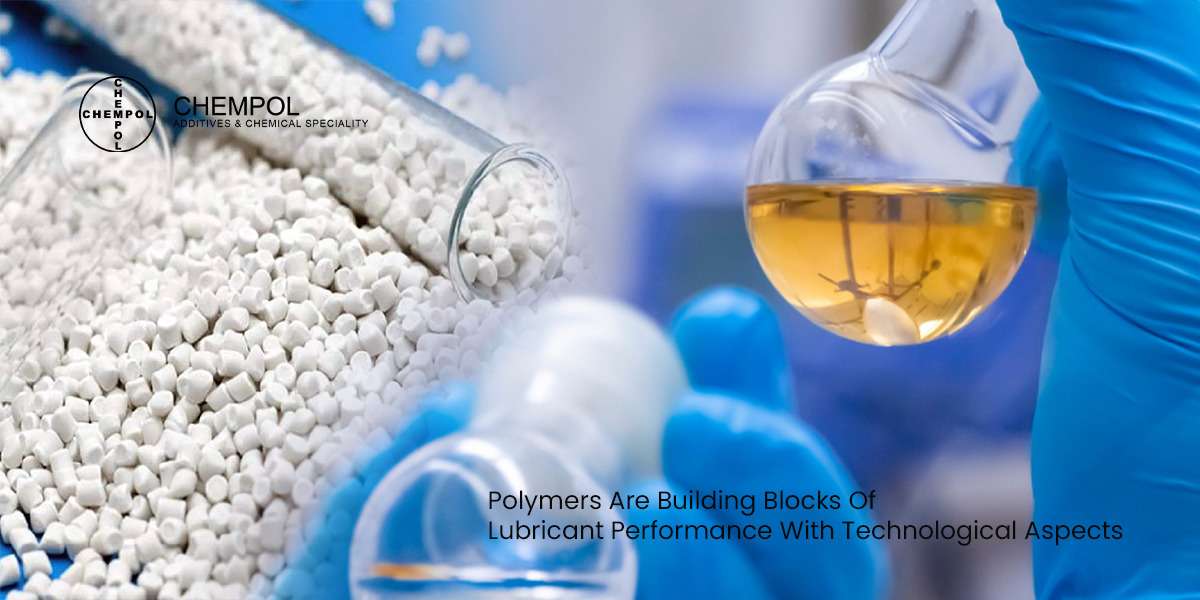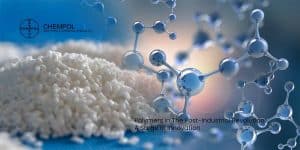
The Science Behind What Polymers Are Used For
Polymers Are Building Blocks Of Lubricant Performance With Technological Aspects.
Polymer is a word we hear a lot about. It is very important that one cannot imagine life without it. It has spread over our every use of things. Polymers are a large class of materials consisting of small molecules called monomers, linked together to form a chain and are used in a lot of products for our daily use. They are the technological-advanced chemicals, even for the lubricants and oils industry.
In the intricate world of modern civilization, where technology is taking place day by day, the threads and chemicals of everyday life are invisible to the naked eye. They are the formation of new things woven together. These invisible, powerful chemicals are polymers.
We only use synthetic polymers in chemistry and often set aside their power. These are the basics of any formation and new things. Besides the new things, polymers are the powerhouses of performance for lubricants. Their workings go beyond the mundane association. Polymers are the building blocks of industrial manufacturing, such as paints, greases and lubricants and others. But these are the power performance enhancers of these products.
The old roots are deep and complex, but here are some of the historical perspectives of polymers for a complete understanding of the product.
The Genesis Of Polymers: A Historic Perspective
Polymers have been intertwined with human progress long before the term was coined in the early 19th century. Derived from the Greek ‘poly,’ meaning many, and ‘meros,’ meaning parts, polymers are essentially large molecules composed of repeating structural units linked by covalent bonds. This molecular arrangement allows for a vast array of materials with diverse properties—elasticity, durability, and resistance to chemicals, to name a few—making them integral to countless applications.
Polymers In The Post-Industrial Revolution: A Surge In Innovation

The Industrial Revolution heralded the onset of synthetic polymers, which have since undergone an evolution paralleling the growth of human innovation. The post-World War II era, in particular, marked a significant upsurge in polymer demand, driving research and development to new heights. Today, the polymer industry burgeons, continually unveiling materials that push the boundaries of what we previously deemed possible.
The Ubiquity Of Polymers
Consider the myriad of polymer additives and their functions that permeate our daily existence. Clothing and sportswear crafted from synthetic fibers provide comfort and durability.
Polyethylene cups and containers offer lightweight, cost-effective solutions for food and beverage storage. Nylon bearings and epoxy glues hold our machinery and structures together with unparalleled strength. Meanwhile, polyurethane foam cushions cradle us in our vehicles and homes.
Silicone heart valves pulse within human chests, and Teflon-coated cookware makes culinary ventures less laborious. The list is inexhaustibly extensive, a testament to the versatility of polymers. However, the most important use of polymers is in the lubricant and oil industry for making it more powerful. These have become essentials for making the industry move freely.
The Invisible Pioneers
Beyond their tangible applications, polymers are intrinsic to the scientific and chemical realms. They form the basis for innovative materials used in cutting-edge research, life-saving medical devices, and progressive pharmaceuticals. The synergy between polymer science and other disciplines, such as physics, biology, and engineering, has catalyzed advancements that were once mere musings of science fiction.
Environmental Considerations

Polymers are not without their environmental impact, a subject of increasing scrutiny. The very durability that makes them desirable can also render them persistent in ecosystems, leading to pressing concerns about waste and recyclability. Addressing these challenges is a crucial facet of contemporary polymer science, spurring the development of biodegradable polymers and more efficient recycling techniques.
The Science Of Polymers
The more we investigate polymers at the molecular level, the more we find out about the rules that control their behavior. A complex web of reactions makes up polymeric chemistry. Elastomers, thermoplastics, adhesives, and composites are just a few examples of the many types of polymers, each with its own distinct properties and uses. Although these polymers serve different purposes, the rules that govern them are valid everywhere. Innovation opens doors to unlimited possibilities, and this universality underscores the elegance of polymer science.
The Collaborative Field Of Polymer Science

The field of polymer study is dynamic, always developing, and closely connected to the more general lines of investigation in the scientific community. It attracts a wide range of professionals, including material scientists, chemists, engineers, and a myriad of others, who work together to solve these macromolecules’ mysteries and use their potential. The interaction of polymer science with other fields of study is not only additive; rather, it is multiplicative. This is because the convergence of a wide range of expertise accelerates the subject into new depths of discovery.
Polymers have been steadfast partners throughout the vast narrative of human progress; they have been silent yet impactful. Their existence is inextricably intertwined with the very fabric of our lives in a manner that is frequently disregarded but undeniably essential.
Chempol is about making important discoveries by employing technology for polymers. It will change the way we see things and their improvement. This means that the study of polymers will continue to be one of the most interesting and well-known areas to bring in revolutions about how things can be improved and how to improve their performance.
Polymers Are The Building Blocks Of Progress With All The Innovative Technology
Polymers are more than just chemicals or materials. They are helpers in making life possible and worth living. These are the stars for our future guidance that makes things easier, faster, and more creative. understanding and making use of polymers is an ongoing process. As we move forward in the future of lubricants and other useable things, we recognize the deep importance of polymers. Our manufactured polymers are the building blocks of oils and lubricants for your industry and automotive.
Polymer Science Has A Bright Future.
We have only begun to scratch the surface of the huge and varied world of polymers in this study. Although this is the case, it is clear that their role in our lives is not only essential but also transformative, even from this brief look. As we continue to make progress and come up with new ideas, polymers will undoubtedly be at the front of the pack. They are going to change the future of materials in ways we can’t even remember.
Chempol has a polymers and additives list. You can choose the one that is desired for you.


